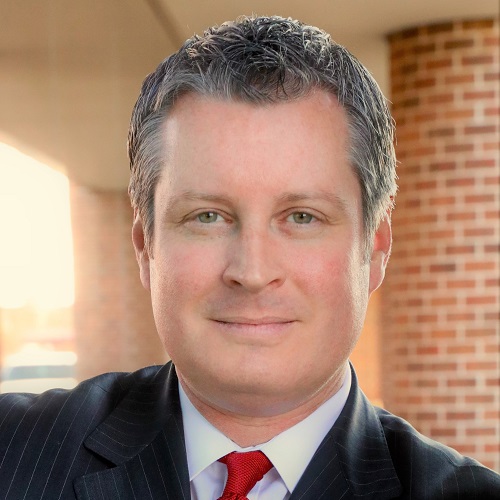When it comes to settling business disputes, there is no better mediator in Kansas City than Rich McLeod. He carries the constant expression of a man who knows the end to every story and punch line to every joke. McLeod is a true believer in mediation.
For the uninitiated, mediation is a ritual where feuding parties come together at a neutral site with a neutral person to seek a negotiated resolution. Most federal and state courts in the United States require litigating parties to partake in some flavor of mediation prior to trial.
I have experienced more than 30 mediations with Rich McLeod. He patiently stirs a bubbling cauldron of game theory, psychology, legal reasoning and street smarts to make both sides see the flaws in their respective cases (step one), then choose compromise over the risks of continued conflict (step two). His mediations at times resemble an ancient religion, and at others, the greatest reality television ever conceived. McLeod says things like, “Never take a hostage you are unwilling to shoot,” and “if you are not at the table, you are probably the main course.”
Wry wit comes easy to McLeod, but crack open these kernels, and there is real wisdom inside.
His first kernel is a statement on the dangers of brinkmanship in negotiation, a topic brilliantly distilled by Avinash Dixit and Barry Nalebuff in their bestseller, Thinking Strategically: The Competitive Edge in Business, Politics and Everyday Life (recommended reading for all who find themselves embroiled in business or personal conflict).
“Outrageous demands and ultimatums sometimes work,” McLeod explained. “The prospect of the precipice can push your opponents beyond where they wanted to go out of fear it is their last chance.
“But what happens if you draw a line, and they cross it? If there are no consequences, they know the line means nothing. Not that one or the next one.”
His second kernel is a warning to those with a stake in the lawsuit who are not actually parties, such as insurance companies or other potential defendants.
Although invited to mediation, these peripheral actors often decline. McLeod argues they may be foreclosed from protesting the outcome later. “When serious disputes are being resolved, smart lawyers and motivated parties can be resourceful.”
The phrasing of what is settled, what remains, and why is a good reason for those in the margins to pull up a chair and protect their rights.
“Even if you think your dog is safely in the kennel and not in the fight,” McLeod added, being at the mediation is an opportunity to gather information and possibly influence the outcome. In McLeod’s words, presence at the mediation provides a “view of the wizard and not just the curtain.” McLeod is not the curtain in his analogy.
Charley German is regarded by many as the best business litigator in Kansas City, both inside and outside the courtroom. He generally prefers opposing counsel working together to craft business solutions instead of mediation, but he acknowledged the process has its place.
“Certain mediators bring a level of sophisticated neutrality to the table that can be persuasive to some clients,” German explained to me over a cup of coffee.
When hiring mediators, German values credibility, creativity and analytical skills.
“Simply paying money back and forth is easy, but the best settlements in business cases may have a (transactional) component to the ultimate deal,” he said.
Both McLeod and German would agree the words chosen at mediation can make a difference. The mediator interacts with both parties, but the parties only through the mediator. As a result, McLeod learns what is important to each side by how they spend their time with him.
A mediator is always collecting data, even when he asks how the day is going. Good lawyers remind their clients to think carefully before answering even the most innocent question from a mediator.
My own feelings about mediation are mixed. I love trying a case to verdict. After 20 years in the courtroom, I still feel euphoric cross-examining a witness, making a closing argument, and forging a connection with the jury.
Thanks in part to skilled mediators like McLeod, fewer cases make it to trial. Since 1962, civil case filings have increased exponentially, while the number of trials has declined.
Today the biggest challenge in avoiding jury duty is finding a jury trial to avoid. The trend supports a singular conclusion. If you find yourself or your company in a lawsuit, chances are you will end up in mediation.
When the doors close, I can only hope you have a mediator as innovative as Rich McLeod and a lawyer as skilled as Charley German, and you know what to expect – and not expect – from the ritual of mediation.
About the Author
 Matt Geiger is a Thinking Bigger Foundational Partner
Matt Geiger is a Thinking Bigger Foundational Partner
Matt Geiger is a trial lawyer with more than 20 years experience representing business owners and executives in Kansas City courtrooms. He is the co-founder of Geiger Prell Business Disputes.
Call Matt at: (913) 661-2430
Or visit: http://www.geigerprell.com

